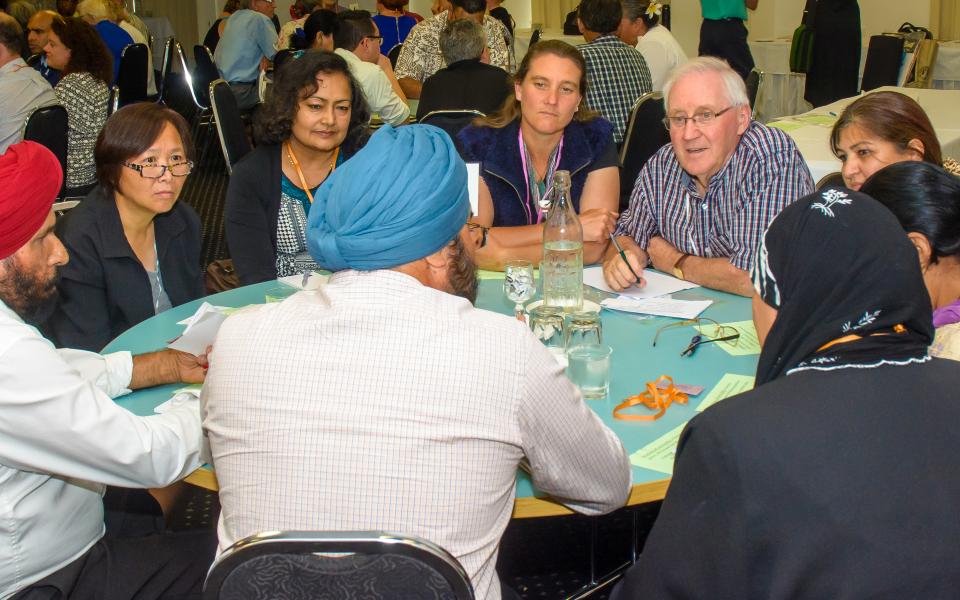
URI – thriving on diversity!
Why are there are myriad strands, sub-groupings, and branches within most religious/spiritual traditions? What fuels the human tendency to break away into splinter groups; disagree over practices and beliefs; leave communities to start new ones? We know about the separation, strife, and isolation, as well as violence, that historically result from these fragmentations.
URI is dedicated to building bridges of mutual respect and cooperation among people from different religions, spiritual expressions and indigenous traditions. URI has taken up the challenge of holding an ever-evolving morass of religious/spiritual expression and diversity together as one global community. Why is it working? Why don’t people branch off from URI? Why do people keep joining? Why do most people stay?
Margaret Wheatley, in “Promise and Paradox of Community”, offers insights. She points out, “people form communities from basic needs – the need for self-determination and the need for one another. But in modern society we have difficulty embracing the inherent paradox of these needs. We reach to satisfy one at the expense of another.” We want to join community to be in relationship and we also have an absolute need for individual freedom and self-expression. She says that, to hold this paradox in tension, organizations rely on a shared purpose that is “clear and beckoning.” She says, “People’s great creativity and diversity, our desire for contribution and relationships, blossom when the heart of the community is clear and beckoning.”
URI provides a healthy freedom of self-expression and at the same time provides “core clarity” in its shared Purpose and coherent standards of behavior in its Principles. URI invites Cooperation Circles to name themselves, to self-organize their activities, to self-govern, to be financially autonomous, and to help one another. URI celebrates Cooperation Circles for their unique contribution to the whole network and does not encourage conformity. URI is contributing to a new way of being community. We are learning what it means to be a community that thrives on diversity.
“Our great task is to re-think our understandings of community so that we can move from the closed protectionism of current forms to an openness and embrace of the planetary community.”
For a more in-depth review of Wheately’s work, see The Promise and Paradox of Community.
